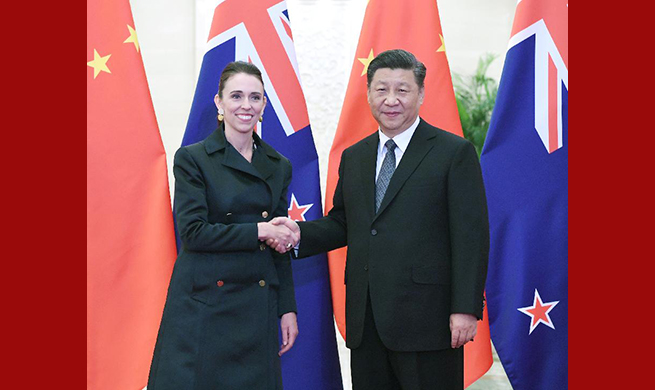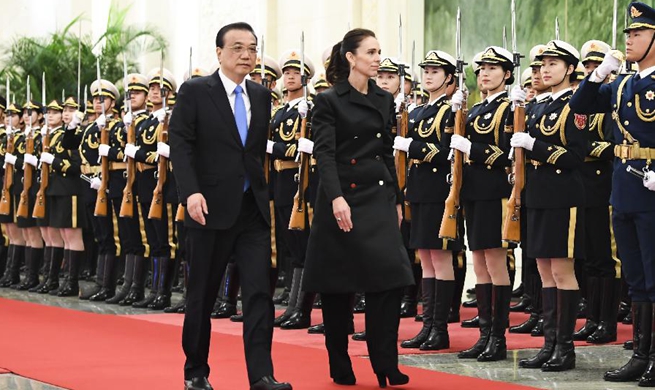BEIJING, April 1 (Xinhua) -- Starting Monday, China's yuan-denominated bonds will be added to the Bloomberg Barclays Global Aggregate Index, another milestone in the opening up of the country's financial market and a boon for global investors.
A total of 356 government and policy bank bonds will be added into the index over the next 20 months, making Chinese bonds the fourth largest currency component, following the U.S. dollar, euro and Japanese yen, after their full inclusion.
When fully implemented, China will be approximately 6.06 percent of the index, using data as of January 31 this year, according to Steve Berkley, head of indices at Bloomberg.
The inclusion marks the latest step in opening China's financial market to global investors. Last year, the country's yuan-denominated A-shares were included in the MSCI Emerging Markets Index, giving overseas investors greater access to its equity market. It also launched a Bond Connect program in 2017, which enables overseas investors to invest in the Chinese mainland's interbank bond market using financial institutions of the mainland and Hong Kong.
The Bloomberg Barclays Global Aggregate Index inclusion "represents an important milestone for China as it continues to strengthen and liberalize its capital market and looks to attract more international investors," said Mark Leung, CEO of J.P. Morgan China.
Valued at over 12 trillion U.S. dollars, China's domestic bond market is the world's third largest and set to become even larger, Leung said.
Despite its massive size and potential, the country's bond market remained relatively less penetrated by global investors, analysts say. This, however, has begun to change.
According to the People's Bank of China, the central bank, overseas holdings of the country's bonds totaled nearly 1.8 trillion yuan (about 267.86 billion U.S. dollars) at the end of 2018, equivalent to 2 percent of total outstanding onshore bonds and surging 46 percent from a year earlier.
As the Bloomberg Barclays Global Aggregate Index is widely tracked by global asset managers, the inclusion will lead to an inflow of overseas investment into the market.
"That step both reflects the importance of those bonds in foreign portfolios and will likely encourage more purchases of those securities going forward," said Changyong Rhee, IMF's director of the Asia and Pacific department.
Moody's forecasts that a full inclusion could potentially lead to an inflow of about 2 trillion dollars of funds.
According to the government work report delivered last month, China will further open up its financial sector and improve policies to open the bond market.
As the country further opens up its bond market, other major global bond benchmarks may follow suit.
China was placed on a watch list for the J.P. Morgan Emerging Markets Government Bond Index Global Diversified in 2016. J.P. Morgan will survey investor sentiment for inclusion at its annual index governance meeting this summer.

















